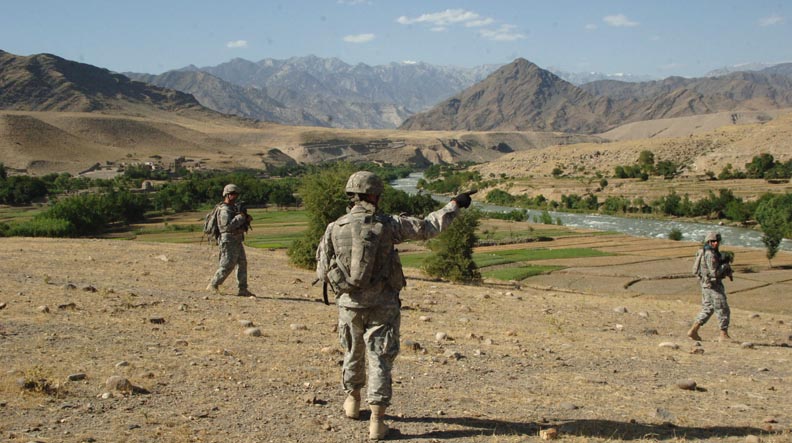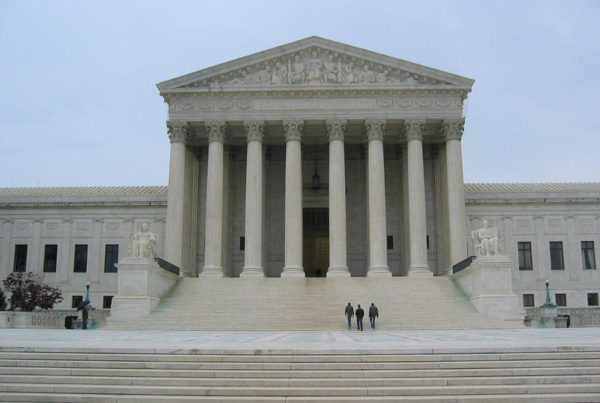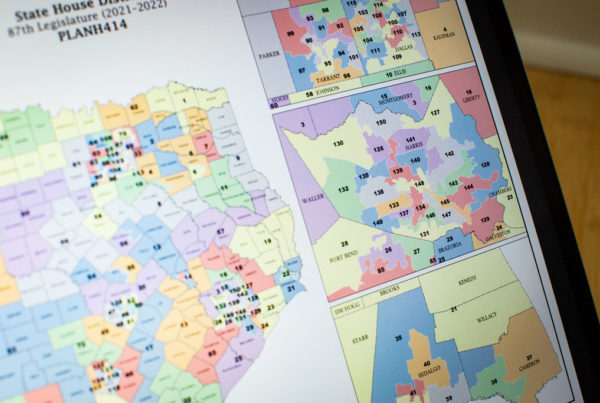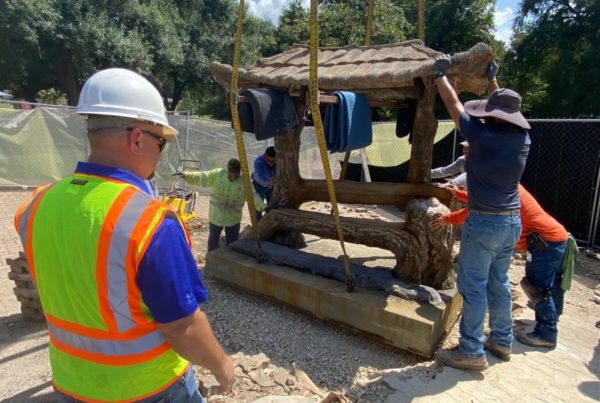Twenty years after the 9/11 terror attacks, what has America learned? And where do we go from here?
Two Middle East experts joined Texas Standard to reflect on where they were that day, and where they believe the United States has succeeded and failed in its so-called war on terror.
Yoav Di-Capua is a professor of modern Arab intellectual history at the University of Texas at Austin, and Aaron O ‘Connell is a professor of military history, also at UT-Austin.
Recollections From Sept. 11, 2001
At the time, Di-Capua was a graduate student at Princeton University, and had recently finished an exam about the “spread of radical Islam.” He says back then, there seemed to be little awareness of al-Qaida, even in his circle of experts.
“In the final exams, there was no question about al-Qaida or anything resembling that,” Di-Capua told the Standard.
O’Connell had recently finished his tenure as a captain in the Marines and was starting graduate school. Sept. 11, 2001 is seared into his memory because his mother and brother were in lower Manhattan at the time.
“We didn’t hear from them for about 90 hours,” he said.
A Primer On Al-Qaida
The organization formed in Afghanistan in the late 1980s and included members from across the Arab world who had waged what they viewed as a successful jihad against the Soviets, Di-Capua says. Led by Osama bin Laden, a Saudi, and Ayumi al-Zawahiri, an Egyptian, the organization put its focus on a new location for holy war: the United States.
“They formed their organization in order to take jihad to the next stage, to America, specifically the attacks of 9/11 masterminded by Osama bin Laden and his associates,” Di-Capua said.
What Led To Al-Qaida’s Jihad Against America?
The end of the cold war destabilized politics in the Middle East. Di-Capua says the region was “in freefall,” which led to U.S. and European countries intervening to in conflicts there. But Di-Capua says that international involvement led to rebellion among some groups in the region.
“In the Middle East, people were appalled by this proposition, the idea that you can bring a certain kind of freedom – the freedom that won the Cold War, not necessarily the freedom that people in the region imagined for themselves. That is not something that won any consensus,” he said.
Why Did The United States Invade Afghanistan?
Afghanistan, then governed by the Taliban, was harboring al-Qaida at the request of Pakistan’s government, O’Connell says. The United States invaded to try to root out al-Qaida, which was responsible for the 9/11 attacks.
Is The War In Afghanistan Really Over?
Rather than ending, O’Connell says the nature of the war is changing. President Biden has said he will continue military operations in Afghanistan “over the horizon,” which means drone and missile strikes rather than sending troops there in person.
Di-Capua says we are now in an era of “perpetual, low-intensity war.”
“It’s decentralized. You don’t have to put a nation state or head of state responsible,” he said.
A Reckoning
Di-Capua says the United States has had to reevaluate its role and influence in the Middle East. He called it a “sizing down of ambition,” and a realization that trying to impart American values onto another, complex culture is bound to fail.
“I think we’ve learned that the foreignness of other states, of other societies, of other cultures, is something that we need to take one step at a time, that we cannot have a utopian ambition to reshape the world in our image,” he said.
O’Connell says the United States did have some military successes related to the war in Afghanistan. The assassination of Osama bin Laden is one example of a successful “targeted counterterrorism strike,” he said. Still, he feels sadness that the “war on terror” did so much damage in the Middle East.
“I think we need to spend a lot of time thinking about how the U.S. uses its enormous power abroad, because the bottom line is that the war on terror has not worked,” he said. “There are four times as many terrorists around the world today than there were before 9/11. There are more attacks, there are more groups, the attacks are more lethal. None of that can be called a success, and that brings me some sadness.”
You can hear more from Di-Capua and O’Connell at KUT-Austin’s next virtual Views and Brews, streaming at 6 p.m. CDT on Sept. 7 on kut.org. You can ask them your questions here ahead of the discussion.














